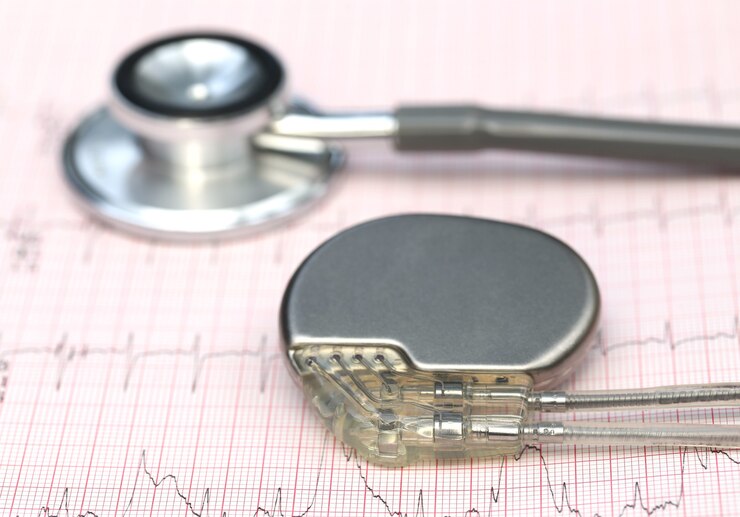
Pacemakers (temporary or permanent), is a medical device which uses electrical impulses, delivered by electrodes for contracting the heart muscles, to regulate the beating of the heart. The primary purpose of the pacemaker is to maintain an adequate heart rate, either because the heart’s natural pacemaker is not fast enough, or because there is a block in the heart’s electrical conduction system. Modern pacemakers are externally programmable and allow a cardiologist to select the optimum pacing modes for individual patients. Some combine a pacemaker and defibrillator in a single implantable pacemaker device. Some pacemakers have multiple electrodes stimulating differing positions within the heart to improve synchronization of the lower chambers or ventricles of the heart.
Bhanu Heart Care, the best heart pacemaker surgery clinics, hospitals and centers equipped with the best cardiac pacemaker doctors, heart pacemaker surgeons, cardiac pacemaker implant specialists is reputed for the best cardiac pacemaker implant surgery in Nizampet, Miyapur, Chandanagar, Hyderabad.
We have advanced heart pacemaker operation clinics, hospitals and centers equipped with the best cardiac pacemaker installation doctors, heart pacemaker installation surgeons, cardiac pacemaker implant specialists is reputed for the best cardiac pacemaker implant surgery (operation) in Nizampet, Miyapur, Chandanagar, Hyderabad.
Bhanu Heart Care is a surgery/operation for heart pacemaker implantation surgeon specialist doctor treatment. We have a highly experienced pacemaker surgeon specialist who provides comprehensive pacemaker hospitals treatment in Miyapur, Chandanagar, Madinaguda and Hyderabad.
Pacemakers work only needed. If your heartbeat is just too slow (bradycardia), the pacemaker sends electrical signals to your heart to correct the beat.
Some newer pacemakers even have sensors that detect body motion or breathing rate and signal the devices to increase heart rate during exercise, as needed.
A pacemaker has two parts:
Pulse generator : This small metal container holds a battery and the electrical circuitry that controls the rate of electrical pulses sent to the heart.
Leads (electrodes) : One to 3 flexible, insulated wires are each placed in one or more chambers of the guts and deliver the electrical pulses to adjust the heart rate. However, some newer pacemakers don't require leads.
Complications related to pacemaker surgery or having a pacemaker are uncommon, but could include:
Copyright © 2022 Bhanuheartcare. All rights reserved. Build with 

WhatsApp us